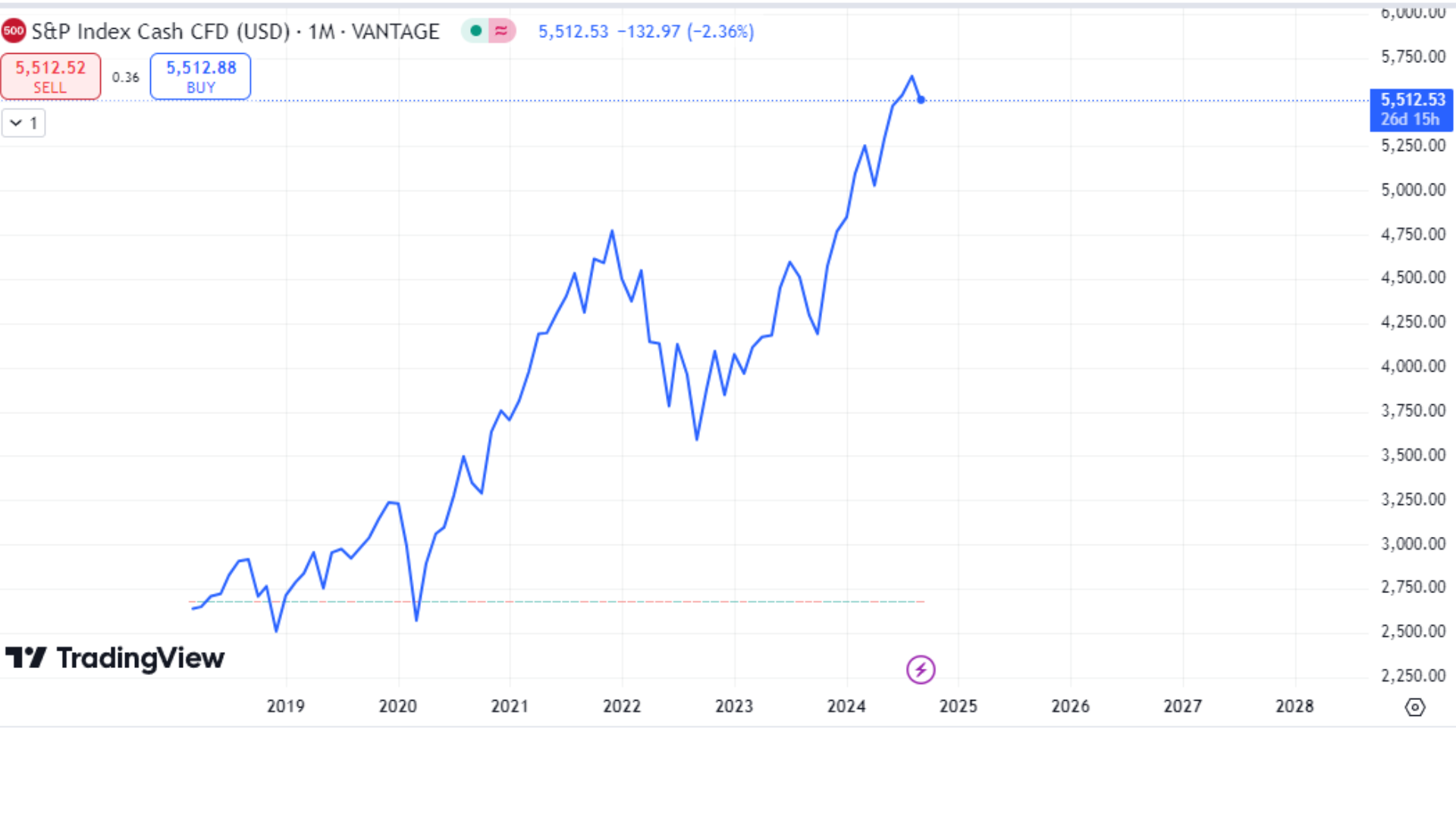August Starts with a Sharp Decline and ends on a High Note
August kicked off with the worst market crash of the year, but despite a rocky start, all major indexes, except one, finished the month with gains. However, September has already begun with another challenging day for the markets.
August is usually a quiet period for stock markets, but this year saw heightened activity and volatility for the S&P 500 and other indexes. The month began dramatically with the worst trading day in two years. On Monday, August 5, the Dow Jones Industrial Average plunged 1,034 points, or 2.6%, which was less severe than the others.
The S&P 500 fell by 160 points, or 3%, while the Nasdaq Composite dropped 576 points, or 3.4%. The Russell 2000 also experienced a sharp decline, losing 70 points, or 3.3%.
This selloff was triggered by weak employment and manufacturing data, sparking fears of a potential recession, compounded by Japan’s decision to raise interest rates.
Markets Rebound Following Positive Inflation Data and Powell's Address
Despite the initial downturn, the markets quickly rebounded. By the end of the crash week, much of the losses had been recovered as investors bought on the dip, although all four major indexes remained down for the week.
The following week, the S&P 500 posted its best performance of the year, rising 3.9%. The Nasdaq surged 5.3%, and the Dow increased by 2.9%, marking these indexes' best week of the year. The Russell 2000 also gained 3.3%, though it wasn’t its best week.
These gains were largely driven by the July Consumer Price Index (CPI) report, which showed inflation falling below 3% for the first time in over three years, dipping to 2.9%. Positive news on retail sales and consumer sentiment further boosted market optimism.
The markets continued their positive momentum into the following two weeks, with the primary catalyst for the week of August 19 being Federal Reserve Chair Jerome Powell's speech at the Jackson Hole Economic Symposium. Powell's remarks were seen by some as a sign of the Fed's success in reducing inflation and achieving a soft landing. He indicated that “the time has come for policy to adjust,” hinting at potential interest rate cuts.
Good news persisted in the last week of August, with the July Personal Consumption Expenditures (PCE) index released on August 30 showing stable inflation at 2.5%, while core PCE fell to 2.6%, both beating expectations.
S&P 500 Climbs 2.3% in August
Historically, the average return for the S&P 500 in August, dating back to 1928, is 0.6%. However, in August 2024, the S&P 500 achieved a 2.3% gain, ending the month at 5,648. Year-to-date through August 30, the S&P 500 is up 18.4%.
The Dow Jones Industrial Average also had a solid month, up 1.7% to close August at an all-time high of 41,563. The Dow is up 10.3% YTD.
The Nasdaq gained 0.6% in August, closing at 17,713. Through August, the Nasdaq has gained 18%.
The only major index to lose ground in August was the Russell 2000, which fell 1.6%. Through August 30, the Russell 2000 has returned 9.4% YTD.
A Difficult Start to September
On the first full trading day of September, the markets experienced a significant downturn, particularly the Nasdaq, which was down 590 points, or 3.3%, as of 3:40 ET.
This decline may have been influenced by a weak manufacturing report, which had similarly driven down the markets about a month earlier on August 5. However, it likely has more to do with an overpriced tech sector undergoing a correction.
The S&P 500 was down 133 points, or 2.4%, on Tuesday, while the Dow dropped 747 points, or 1.8%, as of 3:40 p.m. ET. On Tuesday, the Russell 2000 was down 67 points, or 3%.
Will this early September crash lead to a stock market rally similar to those seen in August?














